
George Inness Painting Reproductions 7 of 9
1825-1894
American Romanticism Painter
195 George Inness Paintings
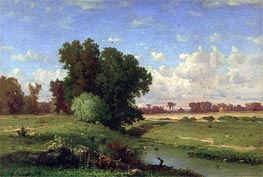
Hackensack Meadows, Sunset 1859
Oil Painting
$595
$595
Canvas Print
$66.22
$66.22
SKU: ING-9227
George Inness
Original Size: 46 x 66 cm
Historical Society, New York, USA
George Inness
Original Size: 46 x 66 cm
Historical Society, New York, USA
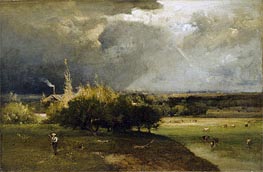
The Coming Storm c.1879
Oil Painting
$682
$682
Canvas Print
$105.28
$105.28
SKU: ING-9228
George Inness
Original Size: 69.2 x 106 cm
Addison Gallery of American Art, Andover, USA
George Inness
Original Size: 69.2 x 106 cm
Addison Gallery of American Art, Andover, USA
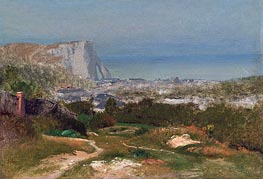
Etretat n.d.
Oil Painting
$590
$590
Canvas Print
$101.13
$101.13
SKU: ING-9229
George Inness
Original Size: 45.7 x 66.7 cm
Private Collection
George Inness
Original Size: 45.7 x 66.7 cm
Private Collection
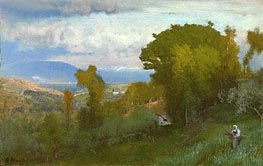
Albano, Italy n.d.
Oil Painting
$481
$481
Canvas Print
$66.22
$66.22
SKU: ING-9230
George Inness
Original Size: 26.7 x 41.3 cm
Private Collection
George Inness
Original Size: 26.7 x 41.3 cm
Private Collection
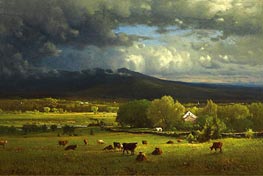
Sunset on the River 1867
Oil Painting
$827
$827
Canvas Print
$66.96
$66.96
SKU: ING-9231
George Inness
Original Size: 77.5 x 115.6 cm
Private Collection
George Inness
Original Size: 77.5 x 115.6 cm
Private Collection
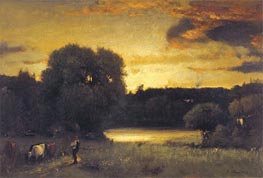
Slow Fading Day 1880
Oil Painting
$558
$558
SKU: ING-10550
George Inness
Original Size: 30.4 x 45.7 cm
Private Collection
George Inness
Original Size: 30.4 x 45.7 cm
Private Collection
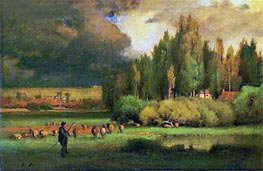
Shepherd in a Landscape c.1875
Oil Painting
$574
$574
SKU: ING-10551
George Inness
Original Size: 30.4 x 45.7 cm
Private Collection
George Inness
Original Size: 30.4 x 45.7 cm
Private Collection
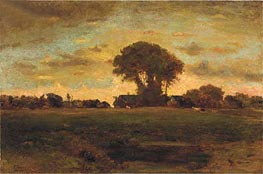
Sunset on a Meadow 1878
Oil Painting
$631
$631
SKU: ING-10552
George Inness
Original Size: 40.6 x 61 cm
Private Collection
George Inness
Original Size: 40.6 x 61 cm
Private Collection
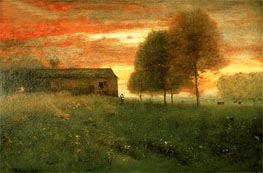
Sunset, Montclair 1892
Oil Painting
$668
$668
Canvas Print
$66.22
$66.22
SKU: ING-12197
George Inness
Original Size: 76.2 x 114.3 cm
Private Collection
George Inness
Original Size: 76.2 x 114.3 cm
Private Collection
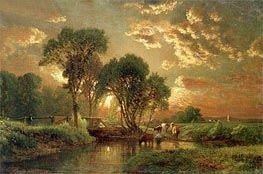
Medfield, Massachusetts n.d.
Oil Painting
$564
$564
Canvas Print
$66.22
$66.22
SKU: ING-12198
George Inness
Original Size: unknown
Private Collection
George Inness
Original Size: unknown
Private Collection
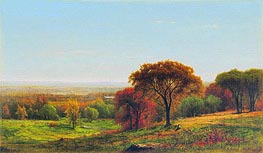
Across the Hudson Valley in the Foothills of the ... 1868
Oil Painting
$548
$548
Canvas Print
$83.42
$83.42
SKU: ING-12199
George Inness
Original Size: 38.1 x 66 cm
Private Collection
George Inness
Original Size: 38.1 x 66 cm
Private Collection
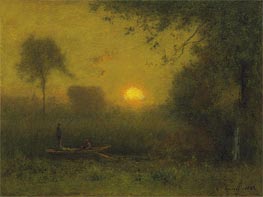
The Sun 1886
Oil Painting
$516
$516
Canvas Print
$92.49
$92.49
SKU: ING-12200
George Inness
Original Size: unknown
Private Collection
George Inness
Original Size: unknown
Private Collection
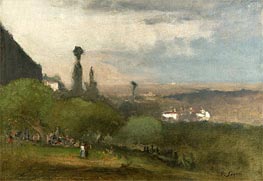
Monte Lucia, Perugia 1873
Oil Painting
$505
$505
Canvas Print
$66.22
$66.22
SKU: ING-12201
George Inness
Original Size: 35.3 x 50 cm
Private Collection
George Inness
Original Size: 35.3 x 50 cm
Private Collection
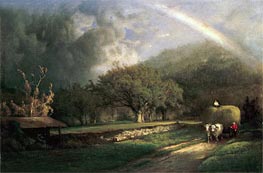
The Rainbow in the Berkshire Hills 1869
Oil Painting
$688
$688
Canvas Print
$80.95
$80.95
SKU: ING-12202
George Inness
Original Size: 50.8 x 76.2 cm
White House Museum, Washington, USA
George Inness
Original Size: 50.8 x 76.2 cm
White House Museum, Washington, USA
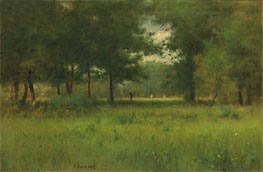
Midsummer 1892
Oil Painting
$668
$668
Canvas Print
$66.22
$66.22
SKU: ING-12204
George Inness
Original Size: 76.2 x 114.9 cm
Private Collection
George Inness
Original Size: 76.2 x 114.9 cm
Private Collection
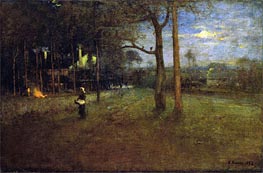
Moonlight, Tarpon Springs 1892
Oil Painting
$689
$689
Canvas Print
$66.22
$66.22
SKU: ING-12205
George Inness
Original Size: 76.2 x 115.5 cm
Phillips Collection, Washington, USA
George Inness
Original Size: 76.2 x 115.5 cm
Phillips Collection, Washington, USA
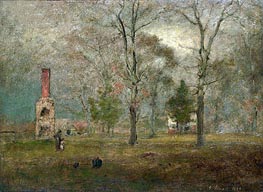
Grey day, Goochland 1884
Oil Painting
$457
$457
Canvas Print
$73.17
$73.17
SKU: ING-12241
George Inness
Original Size: 45.7 x 61 cm
Phillips Collection, Washington, USA
George Inness
Original Size: 45.7 x 61 cm
Phillips Collection, Washington, USA
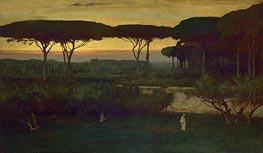
The Monk 1873
Oil Painting
$712
$712
Canvas Print
$66.22
$66.22
SKU: ING-12242
George Inness
Original Size: 97.8 x 163.8 cm
Addison Gallery of American Art, Andover, USA
George Inness
Original Size: 97.8 x 163.8 cm
Addison Gallery of American Art, Andover, USA
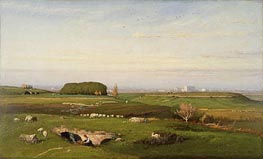
In the Roman Campagna 1873
Oil Painting
$859
$859
Canvas Print
$74.48
$74.48
SKU: ING-12243
George Inness
Original Size: 66 x 109.2 cm
Saint Louis Art Museum, Missouri, USA
George Inness
Original Size: 66 x 109.2 cm
Saint Louis Art Museum, Missouri, USA
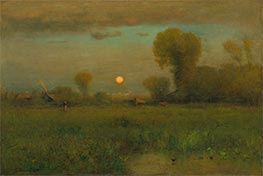
Harvest Moon 1891
Oil Painting
$688
$688
Canvas Print
$67.15
$67.15
SKU: ING-12244
George Inness
Original Size: 76.2 x 113 cm
Corcoran Gallery of Art, Washington, USA
George Inness
Original Size: 76.2 x 113 cm
Corcoran Gallery of Art, Washington, USA
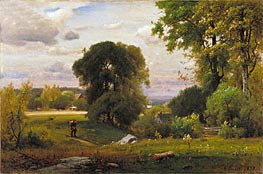
Landscape 1877
Oil Painting
$752
$752
Canvas Print
$110.24
$110.24
SKU: ING-12245
George Inness
Original Size: 65 x 97.8 cm
Smith College Museum of Art, Northampton, USA
George Inness
Original Size: 65 x 97.8 cm
Smith College Museum of Art, Northampton, USA
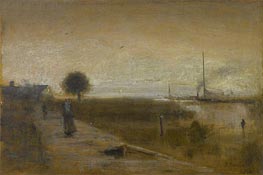
Gulf of Mexico, Florida 1894
Oil Painting
$656
$656
Canvas Print
$111.18
$111.18
SKU: ING-12246
George Inness
Original Size: 61 x 91.4 cm
Colby College Museum of Art, Maine, USA
George Inness
Original Size: 61 x 91.4 cm
Colby College Museum of Art, Maine, USA
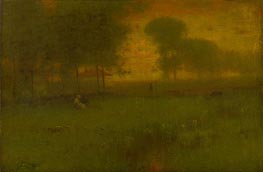
Summer Evening, Montclair, New Jersey 1892
Oil Painting
$738
$738
Canvas Print
$109.53
$109.53
SKU: ING-12247
George Inness
Original Size: 76.2 x 114.3 cm
Colby College Museum of Art, Maine, USA
George Inness
Original Size: 76.2 x 114.3 cm
Colby College Museum of Art, Maine, USA
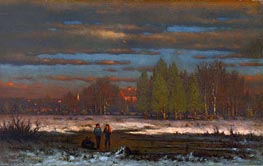
Winter Evening, Medfield n.d.
Oil Painting
$552
$552
Canvas Print
$66.22
$66.22
SKU: ING-12248
George Inness
Original Size: 25.4 x 40.6 cm
Colby College Museum of Art, Maine, USA
George Inness
Original Size: 25.4 x 40.6 cm
Colby College Museum of Art, Maine, USA